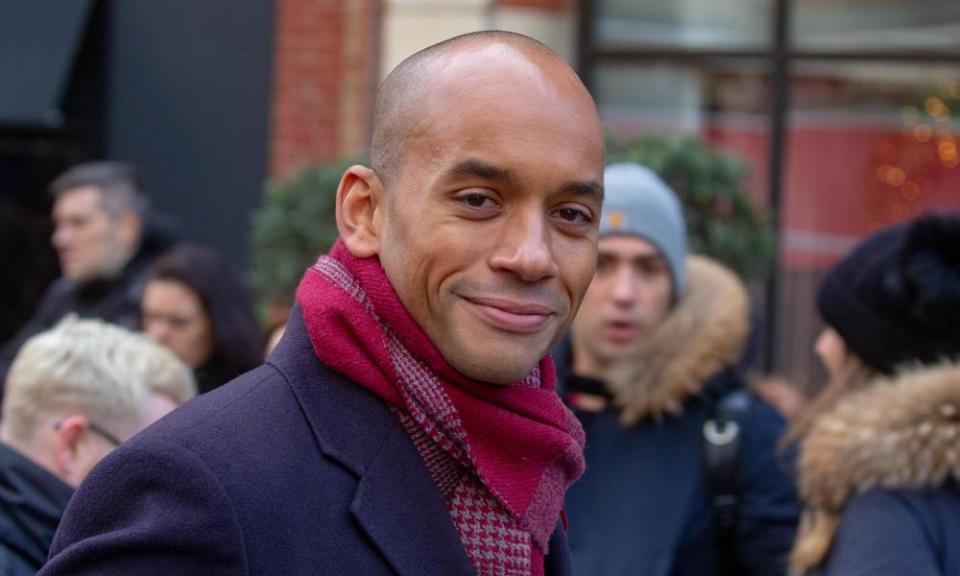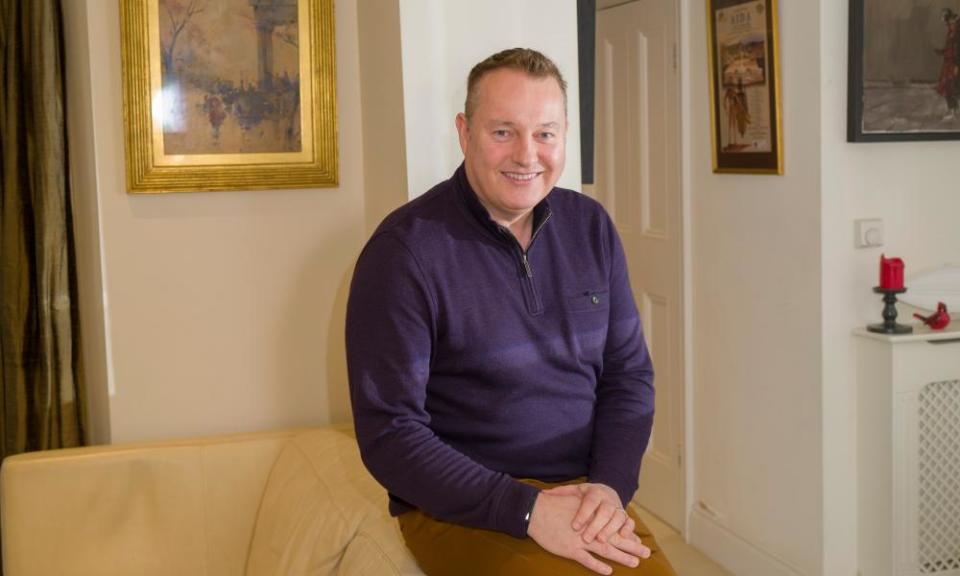'I have lost faith': Brexit dissolves loyalties in London Tory stronghold
When the constituency of Cities of London and Westminster was created in 1950, it immediately returned a Conservative MP. It has done so in every election since. It is the constituency of Mayfair, Belgravia, and Knightsbridge, and the constituency of the City of London itself. As a Tory flagship seat, it has long appeared unsinkable.
But there is more to the area than extreme wealth – from the mixed communities of Fitzrovia and Soho to pockets of deprivation. Notwithstanding its affluence, housing and homelessness loom large among voters who share the streets with one of the UK’s largest concentrations of rough sleepers.
And in 2017 there were signs that a change might be afoot, when Labour more than halved a majority of about 9,000. Now the former minister Mark Field, who in June became the subject of a fierce controversy after he was filmed manhandling an environmental protester, is standing down. Meanwhile, in one of Britain’s most unpredictable elections for decades, Brexit has pushed the Liberal Democrats into contention – with the sort of candidate who is bound to draw attention. After the former Labour MP Chuka Umunna moved from his Streatham constituency to contest the seat, the bookies put him in second place as the Lib Dems seek to capitalise on a 72% remain vote and strong European elections result.
Westminster, in all, will be far harder for the Tories to defend than they might once have expected. If there is a Conservative mirror image of leave-voting, vulnerable northern Labour strongholds it might be this one. For some of the area’s internationalist, affluent residents, old loyalties to the party are being tested against their belief in the idea of an open Britain – even if they aren’t quite ready to declare themselves.
“Voting Conservative is something I’ll probably never do again,” said one banking worker in her 40s who asked to remain anonymous for professional reasons. This time, she was planning to vote for the Lib Dems, she said, but she might easily switch to Labour in future.
Listing her reasons for giving up on the Tories – “a hard Brexit, the horrifying prorogation of parliament and contempt for the rule of law” – she added that her own experience as a first-generation migrant had played a part. “I strongly believe in rule of law, especially coming from a developing world country. What I’ve seen in the last few years is reminiscent of what happens there. I cannot accept that this can be true in the UK – at least, I cannot be party to it.”
She was not convinced that many of the Tory voters she knew from the school gates were ready to give up on the party. In her working world, though, she suggested that tactical anti-Brexit voting might be on the rise.
It is the kind of place, Umunna told the Guardian, where Theresa May’s “citizen of nowhere” line still resonated.

Citing May’s infamous 2016 description of what it meant to be “a citizen of the world”, Umunna said: “You can’t underestimate the fury directed towards the Tories locally by residents who have always voted for them.
“So when the Tories derided UK citizens with an international background as ‘citizens of nowhere’, they were attacking the very identity of this area. And it has not been forgotten by residents.”
But Brexit is not just a priority for former Conservatives. Take Luke Smallman and Deborah Lambkin, a professional couple among thousands of other largely middle-class dwellers on the Barbican estate, who are ditching long-held attachments to Labour in order to back the party they see as being the most steadfast opponents of Brexit.
It was not that other national and local issues did not matter, they said. Smallman, who works in financial services, listed workplace inequality, the gig economy and affordability of housing as a great concern, adding: “My teenage sons have grown up here but I can’t imagine how they could afford to continue to live here independently as adults.”
But as a wintry wind swept across the Barbican’s iconic brutalist architecture, the couple explained inside their apartment why the “B” word mattered above all.
“Averting Brexit is my priority for this election and while I think Labour’s position has improved with what seems like a fairly firm commitment to a second referendum, I have lost faith,” said Smallman, who left the party out of frustration.
Lambkin, an artist who marched with one of her sons during the school strikes for action on the climate crisis, said climate would be the single most important issue but for the fact she viewed the 12 December general election as a referendum. “There are other issues of course, but it boils down to our need to vote for a party that is clearly opposed to Brexit,” she said.
While bookies make the race a two-horse contest between Umunna and Nickie Aiken, the Conservative leader of Westminster council, Labour is making a case of its own. The grassroots Corbynista group Momentum is pouring resources into the seat, and themes and imagery woven into recent Corbyn speeches – those setting out the election as a battle for the many against the few – loom large locally. Corbyn even namechecked the Duke of Westminster, who controls a large central London property empire in the constituency, when identifying five members of “the elite” he would target as prime minister.
In the square outside Walden House, where the duke was recently embroiled in a high-profile controversy after being accused of attempts to “socially cleanse” the interwar council block in order to add to Belgravia’s stock of luxury apartments, Gabriel Diogo pointed out the makeshift markings where he and other children played football in the shadow of their homes.
For now, a multi-ethnic and close-knit community has survived in a sea of gated communities. But to Diogo, 21, a data engineer who lives at Walden House with his mother and two siblings, Labour seemed to be the only party that cared enough about housing to keep it that way.
With some hesitancy – he regards Corbyn’s language about the elites as “marketing talk” – he said he was likely to vote for the party. “It’s not as if I’m a fan of one side or the other, and it’s not even a case of being left or right,” he said. “I just feel like we have a system that is tilted way too much towards wealthy individuals with vested interests.”
Laughing at the suggestion that Conservative canvassers might have come around – “It’s funny, maybe, but we haven’t seen them” – he has tried to find out more about their policies, but shrugs: “I went to their website but it basically said: ‘You can have this future or the Labour future.’ It’s obviously just more marketing.”
For the Labour candidate, Gordon Nardell, a QC, housing is the big issue, with “huge numbers” living in poor quality housing managed by Tory-controlled Westminster City council.
While Labour canvassers are pressing home a warning that a vote for the Lib Dems risks splitting the anti-Tory and remain position, he added: “We’re approaching this election with no assumptions about particular demographics. But I do think there is a suppressed Labour vote here, and that includes among the more affluent people.”

* * *
With those in social housing making up just 18% of the population, it is among the more affluent majority here where the main battle is being waged. And even if there are some who have turned away from the Conservatives, plenty are remaining loyal. A short walk west from Walden House, Jason Belne explained why he believed he had no option but to vote Conservative despite having been a remainer during the referendum.
“I am not a huge fan of Johnson but I do think that the economy is nearly always run better by the Tories and, in time, this is better for everyone, including the less well off,” said the 52-year-old, a former investment banker who now runs a property portfolio.
On a coffee table in the immaculate flat he shares with his husband, there was an election letter from the Conservatives’ Aiken describing her plan: securing more police, “tackling” rough sleeping and ending short-term letting abuse by unscrupulous use of platforms such as Airbnb. Brexit gets a two-sentence mention – the obligatory promise to “get it done” and an insistence that the government’s deal will secure EU citizens’ rights.
It is, perhaps, indicative of the issues that the party hopes will keep its voters in line even in such unusual circumstances. For Belne, though, his support for remain in the referendum would not translate to a change in party anyway. The Lib Dem promise of revoking article 50 was undemocratic, he said. And, as the son of a Jewish immigrant to the East End, when he recently encountered Labour canvassers on this street, he told them that he could not vote for an antisemitic party.
That said, he longed for a time when Brexit no longer dominated politics, “and a slightly right-of-centre Tory party runs the economy sensibly and prudently, implements policies that create genuine jobs, with ambitious home-building projects and a well-run and funded NHS”.
How long will that take? “I think I may have a long wait,” he said.

 Yahoo News
Yahoo News 